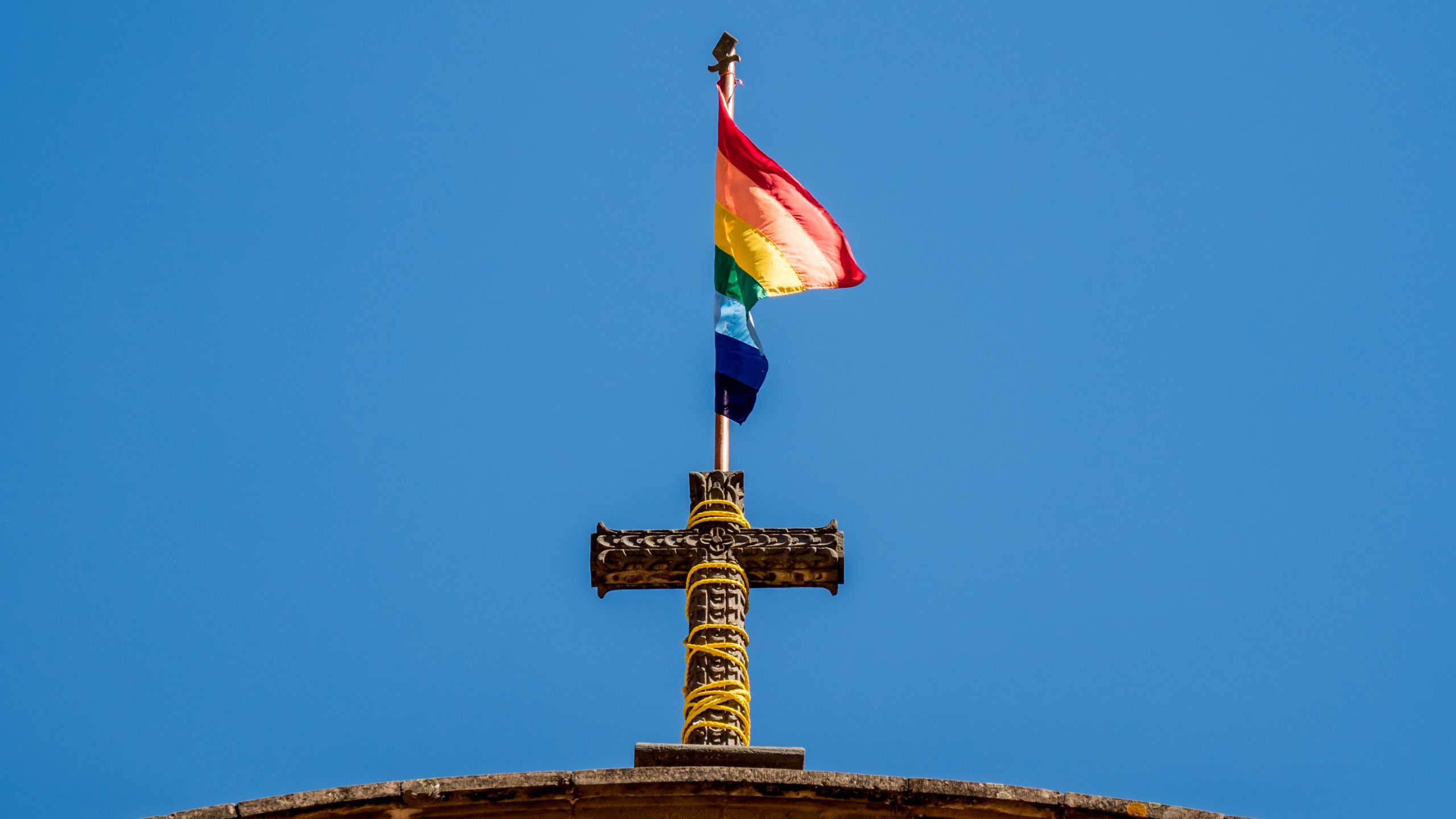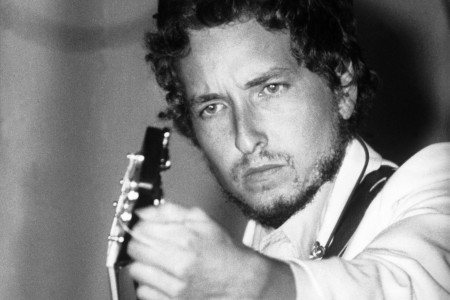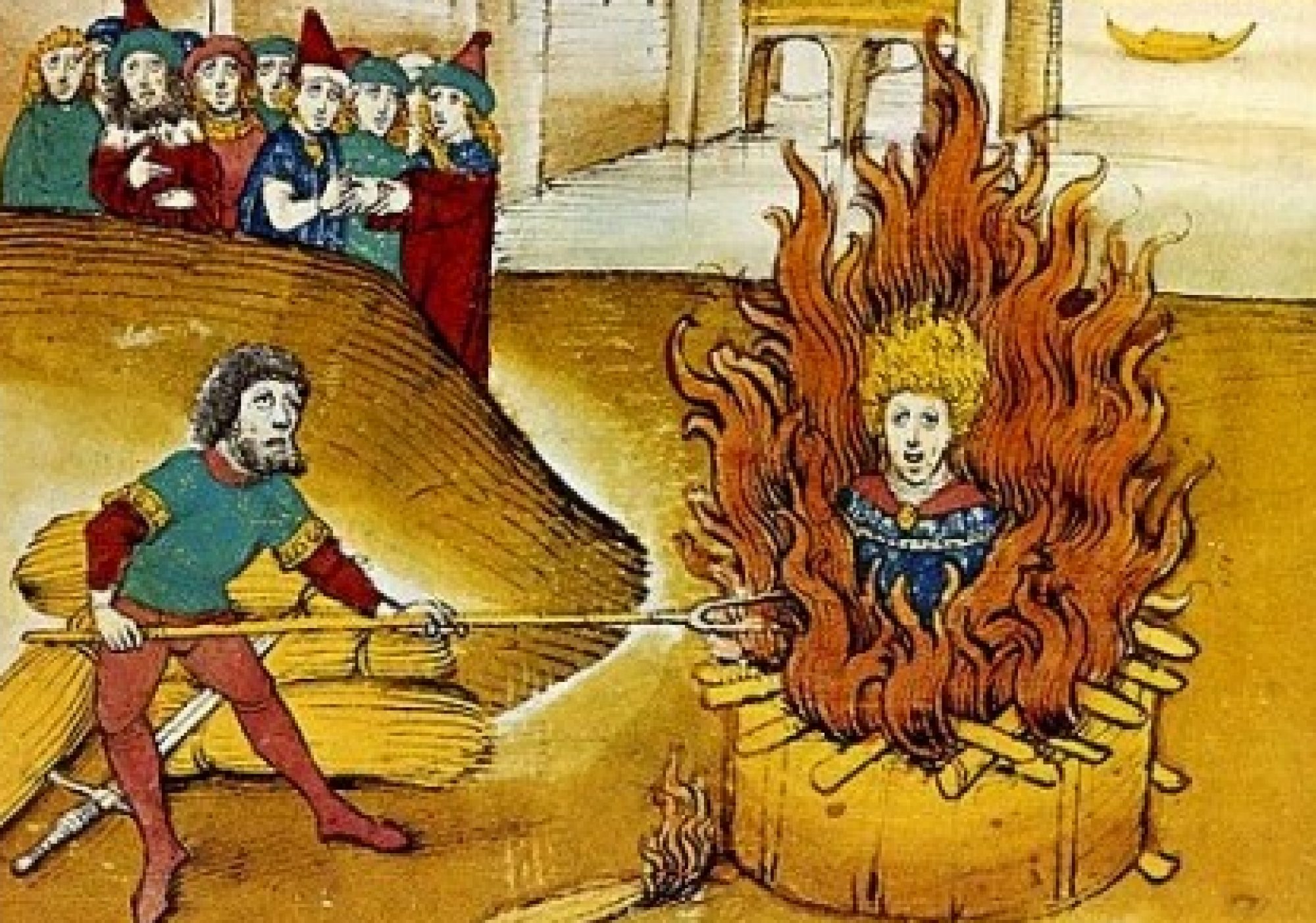Identity politics has taken the place of faith in American life. Why?
The Religious Revolution

The Left wants Christianity to kneel before its gods.
The Claremont Institute’s DC Center for the American Way of Life is a new initiative for actively counteracting the Left’s ceaseless attacks on America. Founded earlier this year with Arthur Milikh at the helm, the DC center is focused on taking legal and cultural steps to fight the full onset of the woke regime. This series of articles puts into perspective what the Left is doing and intends to do to traditional American mores and customs.
What does the Left want with regard to religion in America? Here, as in many other areas, the left seeks not mere reform but revolution. This is not to say that they expect to accomplish their aims in one fell swoop, like the Jacobins or Bolsheviks—using force and terror to throw down one faith and erect another in its place. Rather, they have been pursuing their revolution—patiently, peacefully, and legally—for the last seven decades. Nevertheless, they seek to fundamentally change religion’s place in the American polity.
Simply put, the Left wants to dethrone and subordinate traditional Christianity. They wish to prevent it from ruling America’s public culture and force it to obey a public culture, one the Left is busy establishing and enforcing. This is the very definition of revolution: a reversal of power relations.
In order to fully appreciate the scope of the Left’s project, we must return to the beginning of the American experiment.
America has never had—and, if it remains true to its Constitution, never will have—an official religion. Nevertheless, Americans have always been an exceptionally religious people. Biblical faith—primarily Christianity—has heavily influenced the nation’s morals, culture, and politics. Moreover, those who founded and built up our country regarded religion as a precious institution, necessary to the preservation both of popular self-government and of individual rights.
America’s foundational political morality is the doctrine of individual natural rights—the rights to life, liberty, and the pursuit of happiness. The protection of these rights is government’s first obligation. At the same time, America is founded upon a desire to establish popular self-government: government by the people. These good things do not, however, automatically harmonize. Ruling majorities may be as tyrannical as kings. Accordingly, the founders sought means to tame government by the people, to make it compatible with the ever-vulnerable rights of the isolated individual or the unpopular minority.
The founders considered religion an essential solution to this problem. In his Notes on Virginia (1788), Thomas Jefferson asked: “Can the liberties of a nation be thought secure when we have removed their only firm basis, a conviction in the minds of the people that these liberties are the gift of God? That they are not to be violated but with his wrath?” Similarly, George Washington, in his celebrated “Farewell Address,” admonished his countrymen that “religion and morality are indispensable supports” of “all the dispositions and habits which lead to political prosperity.” “In vain would that man claim the tribute of patriotism,” Washington continued, “ who should labor to subvert these great pillars of human happiness, these firmest props of the duties of men and citizens.”
Chasing Christians from the Public Square
In the 19th century, Alexis de Tocqueville gave the best and most famous account of religion’s key role in American politics. American Christians, he observed, varied widely in their modes of worship but agreed on the fundamentals of morality. Americans properly separated church and state, but their religiously informed moral consensus helped to secure liberty by teaching them that there is a higher justice that even a ruling majority must respect. Thanks to the popular reign of “Christian morality and equity,” Tocqueville observed, “no one in the United States has dared to profess the maxim that everything is allowed in the interests of society, an impious maxim apparently invented in an age of freedom in order to legitimize every future tyrant.”
Such arguments will seem quaint to many readers today. Nevertheless, the historical record supports the founders’ and Tocqueville’s claims about the importance of religion to a free and just society. The modern regime of respect for individual rights arose in European nations that had been influenced by Christianity for a thousand years. And in the 20th century the most ruthlessly tyrannical governments—such as Nazi Germany and Communist Russia—were precisely those that had openly repudiated traditional Christianity.
Believing religion to be essential to America’s political well-being, America’s early statesmen sought to support religion—not coercively, which would violate the First Amendment—but by giving it the encouragement of the government. Hence the long tradition, beginning with Washington, of Thanksgiving proclamations, calling upon citizens to set aside the 4th Thursday in November as a day of prayer and gratitude to Almighty God. Hence the long tradition of prayer in American public schools, as well as government support for religious schools.
Seeking to liberate both the individual and the state from the limits imposed by any fixed and transcendent morality, the Left has labored for 70 years to end this favored (but non-coerced and unofficial) status of religion in our public life. They have prevailed—if not completely, then at least to a large degree. Wielding the power of the Supreme Court, bending the Constitution to their will by inventing a stricter version of separation of church and state than the First Amendment actually requires, the Left has banished prayer from public schools and public ceremonies (such as public-school graduations and football games). They seek to remove the words “under God” from the Pledge of Allegiance and ban displays of the Ten Commandments on public property and in public buildings.
No Safe Space
The revolution, however, does not end here. Having succeeded to a considerable extent in their quest to dethrone religion from its influence over the public mind, the left wants to subordinate religion to a new, non-religious morality.
Dethroning does not necessarily require subordination: it would be possible to deprive religion of its preferred public status yet still leave its adherents free to live out their beliefs in peace. If religion could no longer use the encouragement of government to set the moral tone for the society, it would still be possible for religious believers to influence the moral tone of society, in proportion to their own numbers, by freely living out their convictions as respectable members of the society. Such a settlement would amount to the pluralism that earlier generations of liberals, such as Isaiah Berlin and John Rawls, once defended.
Today’s Left, however, is committed to an extreme form of sexual liberation that requires them to move the goalposts. They hold that individuals have a civil right to create and live out their own sexual identities. This right they understand as a freedom not only from the coercion of the law, but also from any public vestige of traditional Christian morality. Thus they have made clear that they will not be satisfied with pluralism, but that they instead seek to constrain religious practice when it refuses to condone and cooperate with the latest advances of the sexual revolution. Thus Christian bakers and photographers have been subjected to legal proceedings for declining to provide services in connection with same-sex weddings. Thus did the Obama administration seek to compel religious organizations like the Little Sisters of the Poor to provide abortifacient contraceptives to employees under their health insurance policies.
According to the new dispensation, then, gay couples not only have a civil right to marry, but also a civil right to be sheltered from the implicit disapproval of Christians—or, for that matter, of Jews or Muslims or any religious believers—whose consciences cannot approve assisting in such a ceremony. Similarly, individuals have a right not only to purchase and use contraceptives, but a right to have contraceptives provided for them by their employers, even religious employers whose beliefs cannot condone contraception.
The result of such policies is to create a public orthodoxy more compulsory and more intrusive than the religious one the Left worked so long to displace. After all, when America had prayer in public schools, dissenting students were free not to participate. When American governments provided financial support to religious schools, citizens who disagreed were not compelled to contribute to the support directly out of their own pockets.
Indeed, the point of the Left’s most recent moves is clearly not so much to protect the rights of some, but to create a public orthodoxy of sexual liberation to which all must conform. This is made clear by the balance of interests: it is much harder for the photographer or baker to pay thousands of dollars in damages or to find another line of work, than for a couple to find a different photographer or baker. The point here, then, is less to protect anyone from any harm than it is to let dissenters know that they will pay a serious cost for acting on their religious convictions.
The Left’s rhetoric in these debates reveals that they regard traditional religious believers as no better than bigots whose consciences deserve no respect. Indeed, while the 2020 platform of the Democratic Party affirms the right to religious liberty, it is careful to add that “[w]e will never use protection of that right as a cover for discrimination.” According to the ACLU, when religious believers do not want to provide services at a same-sex wedding ceremony, or demur at having to pay for their employees’ contraception, they are just using their religion as an “excuse to discriminate against and harm others.”
Where is this all heading? If it is permitted to proceed unchecked, the Left’s project will result in a total reversal of Christianity’s status in American society. Christianity in the 21st century will end up like atheism in the 19th: tolerated, but disreputable. Traditional Christians will be free to think their thoughts, teach their doctrines, and live out their beliefs privately, but not publicly with a view to shaping the culture in any significant way. If they seek to participate prominently in the nation’s social and commercial activities, they will have to leave aside any principles that conflict with the new orthodoxy. Perhaps even their teachings will be deemed “hate speech” and thus “deplatformed.” The country will be unrecognizable to those who founded it and those who preserved it for most of its existence. This is what the Left is seeking and what conservatives must resist.
The American Mind presents a range of perspectives. Views are writers’ own and do not necessarily represent those of The Claremont Institute.
The American Mind is a publication of the Claremont Institute, a non-profit 501(c)(3) organization, dedicated to restoring the principles of the American Founding to their rightful, preeminent authority in our national life. Interested in supporting our work? Gifts to the Claremont Institute are tax-deductible.
Behind the rhetoric of equality and justice lies an ideology of inequality and scapegoating.
A new political vocabulary is needed for a world itself quite new.



